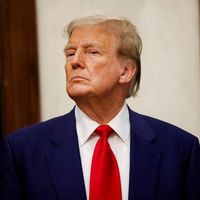UN watchdog says Iran nuclear monitoring insufficient
The UN nuclear watchdog is not inspecting Iran’s nuclear program sufficiently while Tehran edges closer to weapons grade uranium, the International Atomic Energy Agency (IAEA) chief said on Wednesday.
"We are not inspecting at the levels or at the places that we believe we should be inspecting,” Rafael Grossi said on the sidelines of the ongoing World Economic Forum Summit in Davos.
He said that Iran has accumulated about 200 kg of uranium enriched to up to 60% purity, close to the roughly 90% of weapons grade.
Grossi added that the agency does not have evidence that Tehran is building a nuclear weapon but Tehran is not fully cooperating with the IAEA.
“We have not been having the full cooperation of Iran in clarifying a few important things about the past and perhaps the present activities," he said, as around one third of the inspectors remain banned by Tehran.
Grossi said that with Donald Trump being sworn in as the US president “there is expectation that things may be moving again... to bring more certainty to this very volatile situation in Iran.”
On Tuesday, Grossi called on Iran to reach an understanding with the new US administration, expressing concerns about Tehran’s growing stockpile of highly-enriched uranium.
According to the IAEA, Iran’s production of HEU has increased dramatically. In December, the country boosted its production capacity sevenfold to about 34 kilograms (75 pounds) per month, following a diplomatic censure in November.
Iran’s stockpile of 20% enriched uranium also grew by 18 kilograms in the last quarter, further raising concerns.
European powers, including France, Germany, and the UK, are also increasing their scrutiny. They have directed the IAEA to prepare a special report on Iran’s nuclear activities during the first half of 2025.
The report is expected to be presented to the United Nations Security Council, which may consider reimposing UN sanctions before they expire in October.







